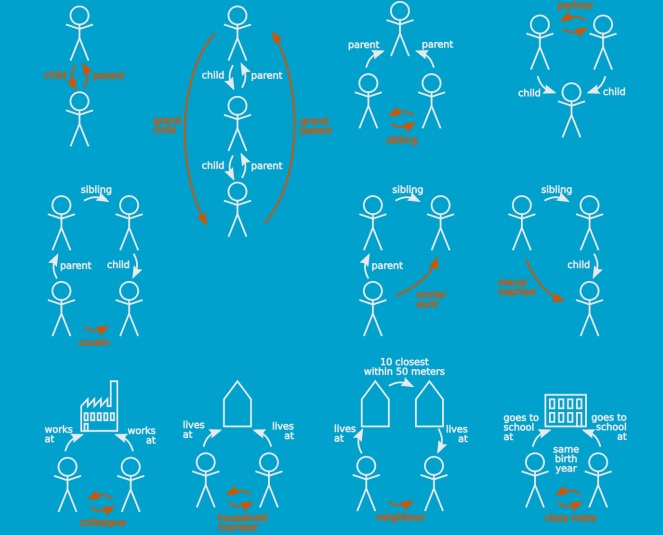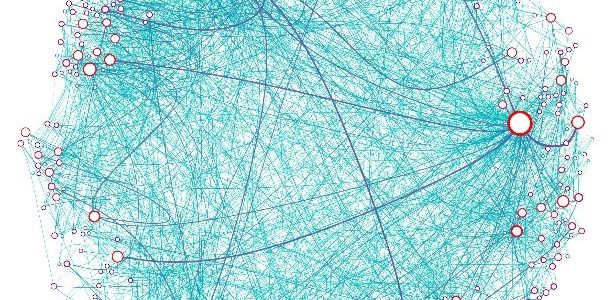Jan van der Laan, Edwin de Jonge, Marjolijn Das (CBS)
In this study, Statistics Netherlands (CBS) examined the social networks of the Dutch. CBS records relationships such as family ties, relationships at work, through schools and in neighbourhoods of every individual registered in the Netherlands.
Within CBS’s Remote Access environment, in which researchers can work with CBS data in a highly secured virtual workplace, this dataset was too big to be uploaded into the computer’s memory capacity. This limited the analysis to a small, regional scale. In the ODISSEI Secure Supercomputer (OSSC) the researchers had access to 250 GB memory, making analysis on a national scale possible.
This way, a total of 16,9 million nodes, interconnected by 800 million links has been mapped. For every Dutch person a personal network has been derived. In this so-called ego-network, persons directly connected to the central person are more important than people who are less close to this person. Furthermore, people who play a central role in a person’s network (who for instance are family with children on the same school) are more important as well. This method makes it possible to compare individuals: to which extent do individuals in the ego-network look like the central person in this network?
With the help of the OSSC the researchers specifically looked at migration backgrounds in these ego-networks, as a measure of segregation in society. People who have mainly persons with the same migration background in their network are highly segregated. Based on this measure, different groups can be compared. To make this comparison valid, the researchers have to take into account the different group sizes and regions. For instance, someone in Friesland will have on average more Dutch people without a migration background in their network than someone from the Randstad. The CBS researchers are currently still working on this comparison.


